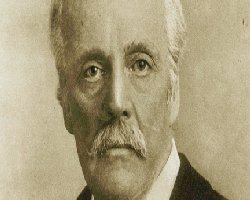On November 2, 1917, Lord Arthur Balfour, the then British foreign secretary, promised to create a homeland for the Jews in Palestine. Known as the Balfour Declaration, the document became the first stepping stone towards the 1948 establishment of the state of Israel.
Palestine was still under Ottoman rule when it was written. But Britain and its allies were making headway in defeating the ailing Ottoman empire and, when Palestine came under British control just a month later, the document suddenly assumed much greater significance. The Balfour Declaration was presented as equal to a land deed that conferred legitimacy on the plans of the international Zionist movement.
Balfour was keenly aware of the presence of an indigenous Arab population, but in an era that preceded international law, the United Nations charter and the Fourth Geneva Convention, a powerful empire had no qualms about granting a land deed for territories it had no legitimate claim to.
The Balfour Declaration did include a stipulation that "nothing shall be done that may prejudice the religious or civil rights of the existing non-Jewish communities in Palestine" - a clause that was not exactly heeded by the founders and rulers of Israel. But little more could have been expected as the declaration itself stripped the Arab community in Palestine of its right to land and self-determination.
'Europe's problem'
But the Palestinian Arabs were the last thing on Balfour's mind, or the minds of many other British politicians. He was primarily concerned with solving 'a European problem' and not with addressing the rights of an indigenous people. He also sought to bolster a declining British empire.
Balfour saw the establishment of a homeland for the Jews in Palestine as the best solution to what was commonly referred to as Europe's 'Jewish problem' - a solution that reflected and embodied the central anti-Semitic belief that Jews were an alien body causing problems in Christian Europe.
Balfour was a known anti-Semite who as prime minister supported and pushed for the 1905 Aliens Act that sought to curb Eastern European, particularly Jewish, immigration to Britain.
Over the years, he grew convinced that Zionism - the movement that advocated the establishment of a Jewish homeland in Palestine - offered a convenient solution to the 'Jewish problem'. Like other anti-Semites he did not believe that Jews belonged in Europe and felt that they comprised a separate race and religion that could not live in harmony within their countries of residence.
He expressed these views clearly in an introduction he wrote to a book called History of Zionism by Nahum Sokolow. Calling on Europeans to support Zionism, Balfour wrote: "For as I read its meaning it is, among other things, a serious endeavor to mitigate the age-long miseries created for Western civilization by the presence in its midst of a body which it too long regarded as alien and even hostile, but which it was equally unable to expel or to absorb. Surely, for this if for no other reason it should receive our support."
While many Jews sought assimilation, the Zionist movement established by Theodore Herzl sought a separate entity for the Jews. It did not see the Jewish problem as one of segregation and discrimination that could be addressed through a struggle for universal rights but sought a more radical solution - to take Jews out of Europe.
Jewish opposition
But not all Jews were convinced that this was the answer. In fact there was considerable resistance to Zionism from some European, including British, Jews. Chief among these critics was the British politician Edwin Montagu who forcefully argued that the declaration could produce a backlash against those Jews who chose to remain in Europe. "I wish to place on the record my view that the policy of His Majesty's government is anti-Semitic in result and will prove a rallying ground for anti-Semites in every country of the world," he wrote in an official memorandum.
Historians believe that Montagu's criticism led to important changes and additions being made to the original draft of the declaration - with Balfour's promise to support making Palestine "a Jewish homeland" becoming support for "the establishment in Palestine of a national home for the Jewish people".
The final draft also stipulated that nothing would be done that might prejudice the rights or political status of Jews in any other country - an attempt to allay fears that the establishment of a homeland for Jews would put Jews in Europe at risk by confirming perceptions of them as an "alien" group.
Thus a formula was found to satisfy both anti-Semites and those Jews who preferred assimilation into their country of residence.
But in all of this drama the Palestinians were neither consulted nor seriously considered. It was then much as it is today - except that British imperial power has been replaced by American imperial power.
Lord Balfour was a true representative of the imperial values of his times - an anti-Semitic politician who sought to solve what was then seen as 'Europe's problem' while setting the stage for the creation of a pro-Western entity in the Arab world. His declaration was an embodiment of both imperialism and anti-Semitism, the repercussions of which are still being felt thousands of miles away from where his short policy statement was crafted.
PHOTO CAPTION
Lord Arthur Balfour
Source: Aljazeera.net


 Home
Home Discover Islam
Discover Islam Quran Recitations
Quran Recitations Lectures
Lectures
 Fatwa
Fatwa Articles
Articles Fiqh
Fiqh E-Books
E-Books Boys & Girls
Boys & Girls  Ramadan
Ramadan Fatwa Audios
Fatwa Audios Month of Mercy
Month of Mercy Women
Women Eed Al- Fitr
Eed Al- Fitr Food Recipes
Food Recipes Videos
Videos

 Prayer Times
Prayer Times












